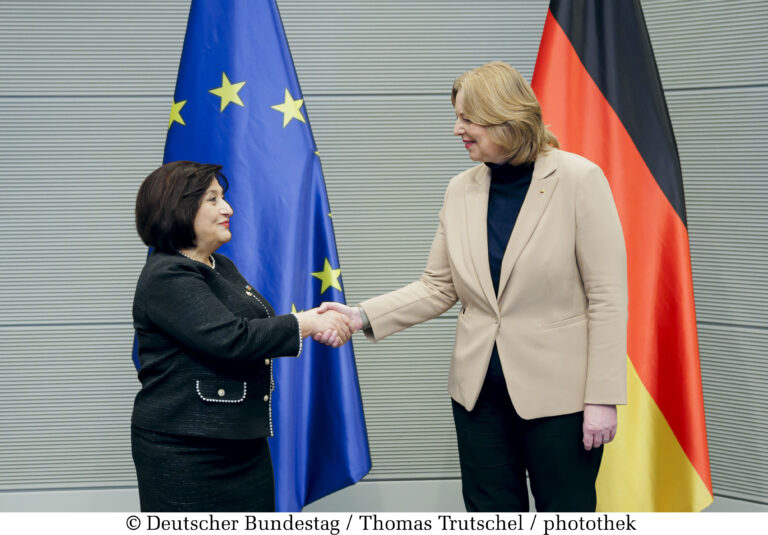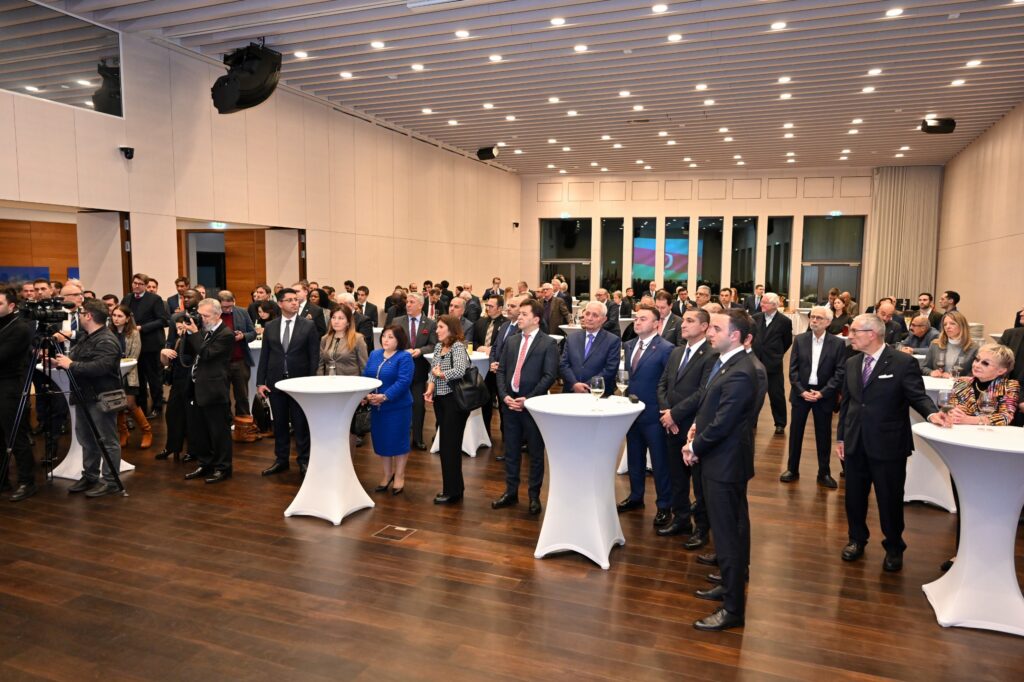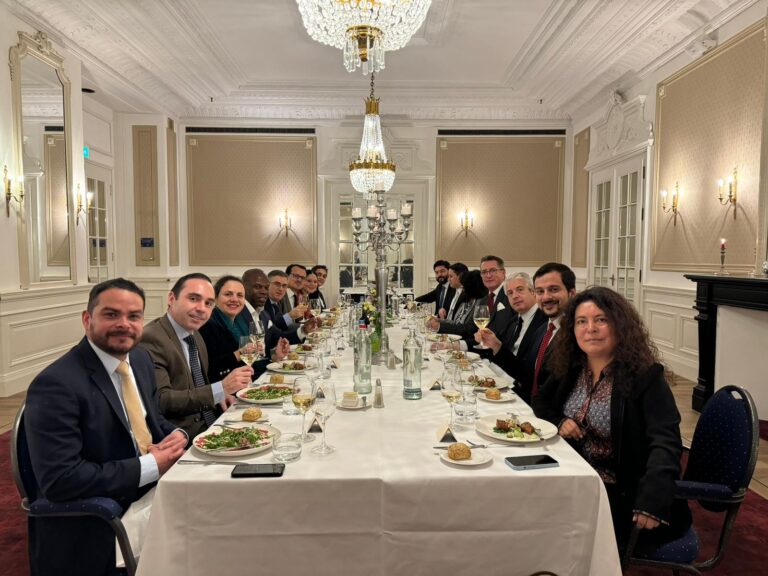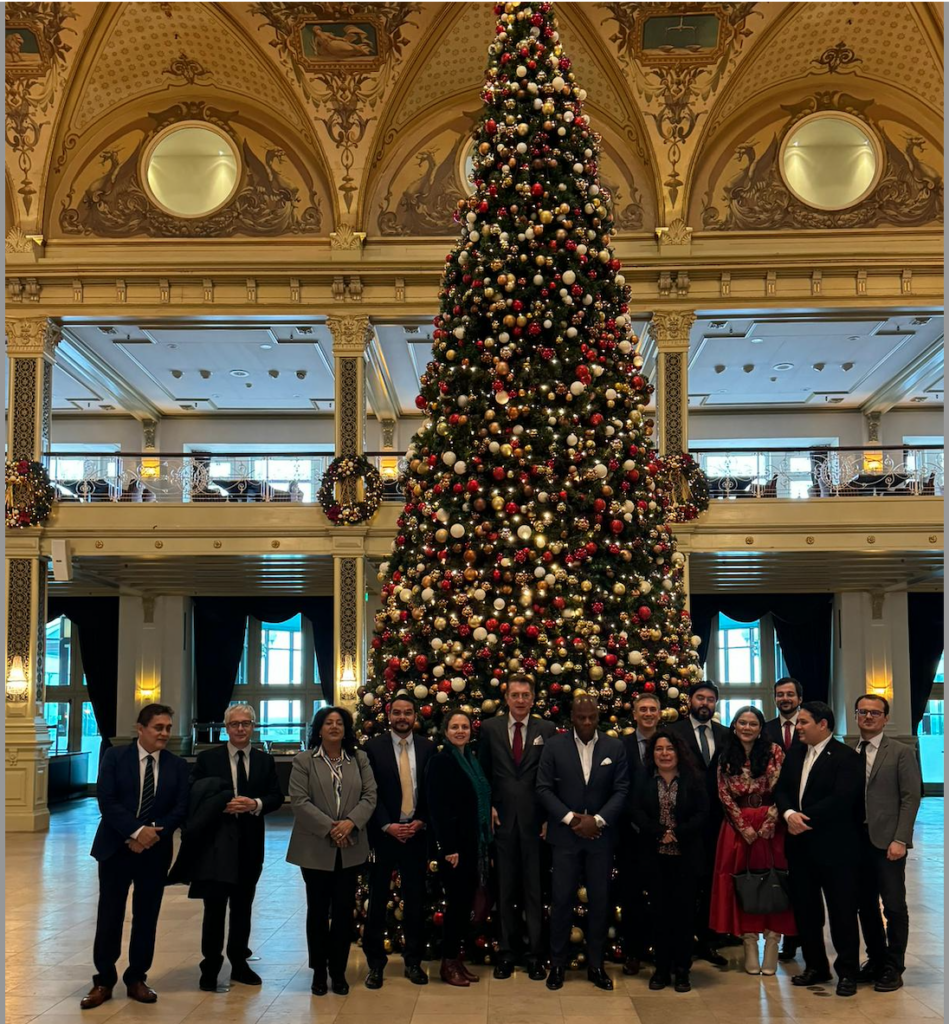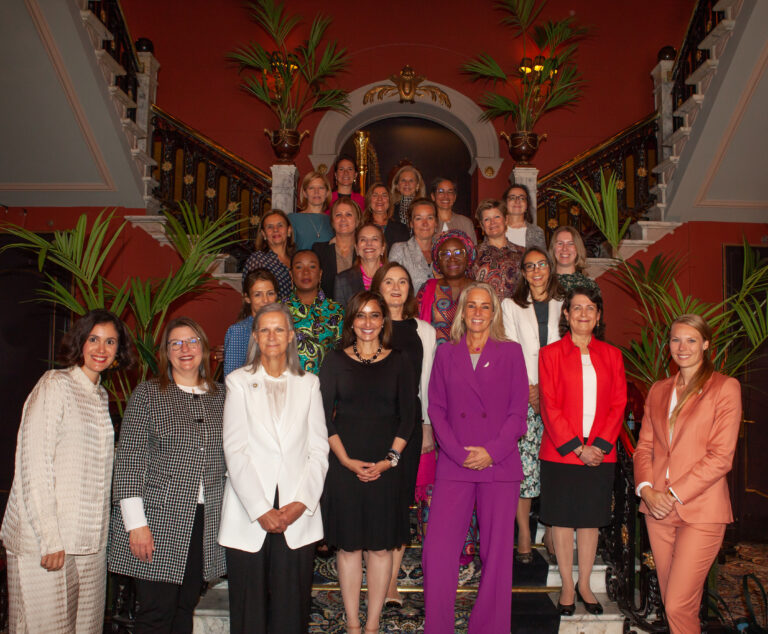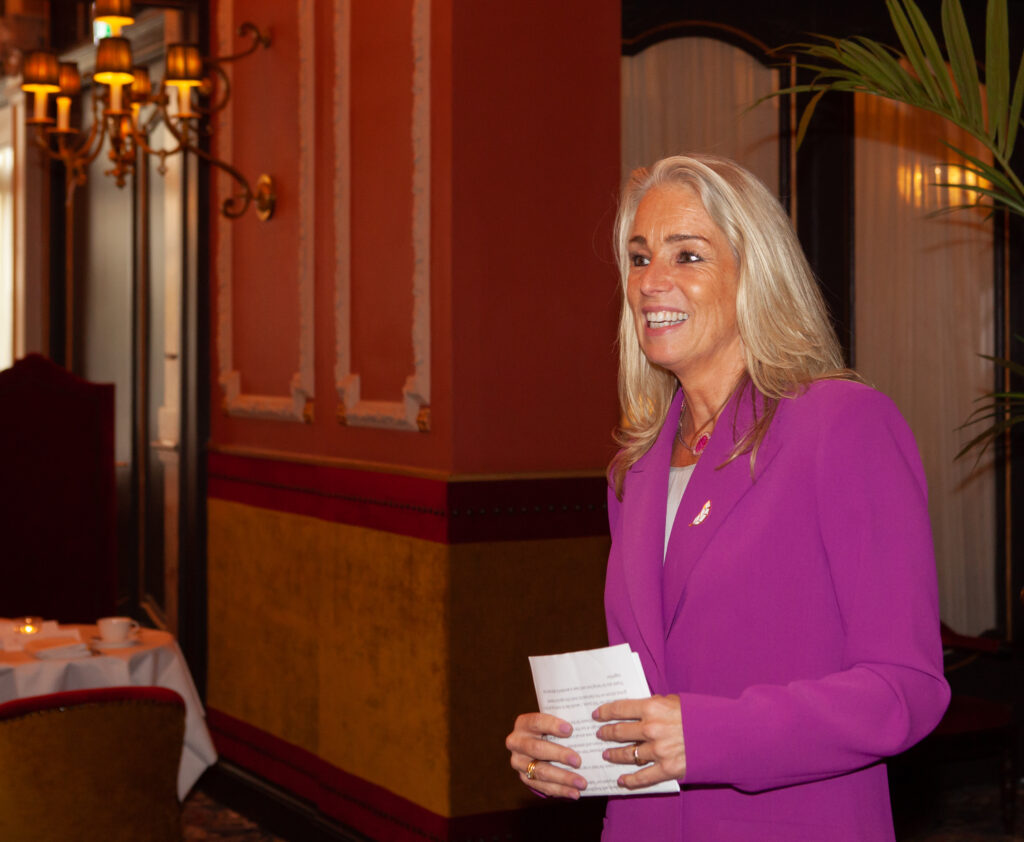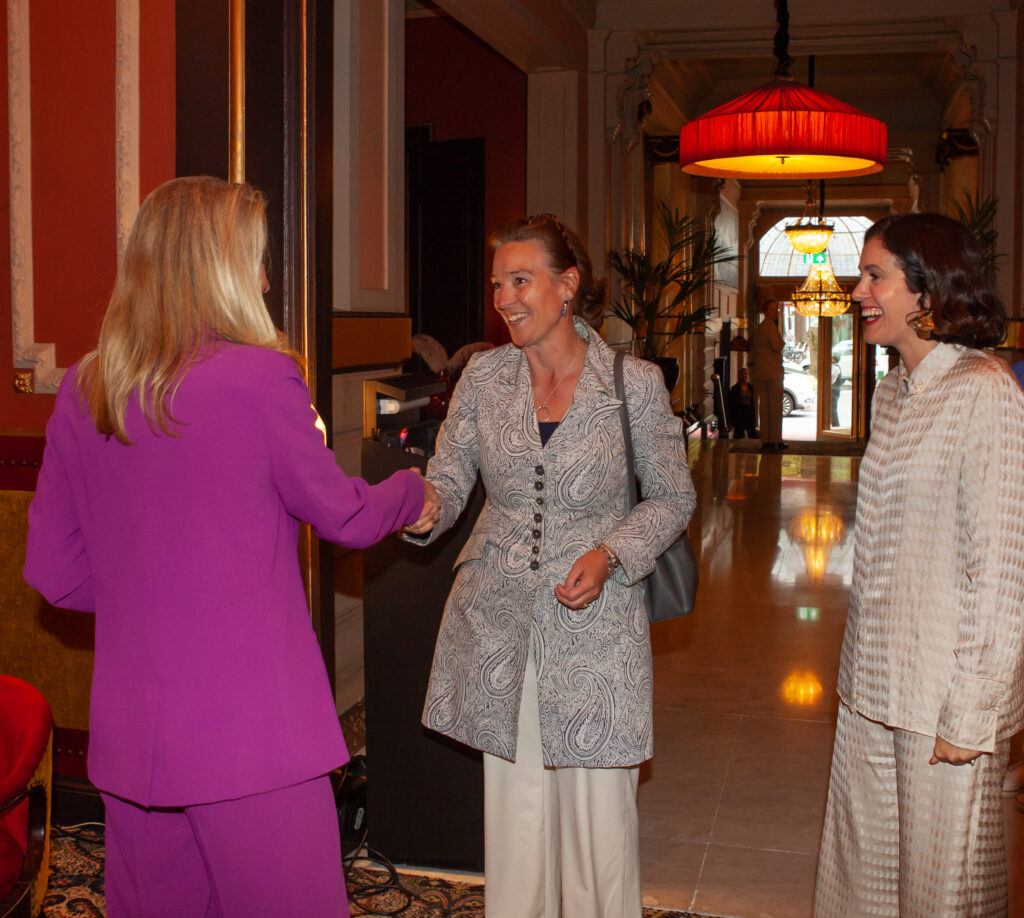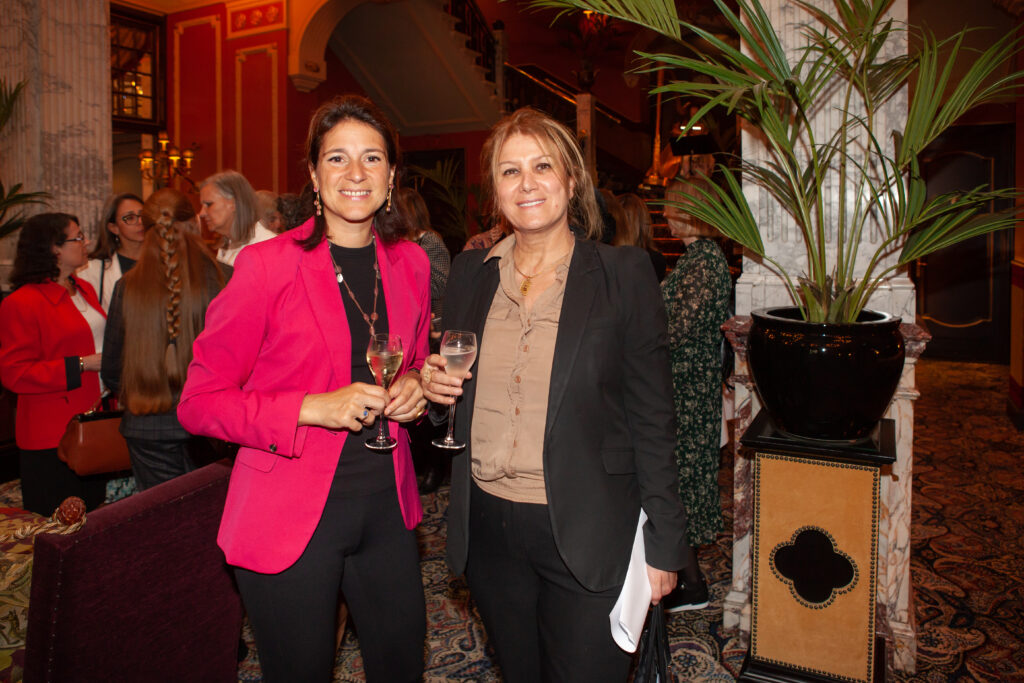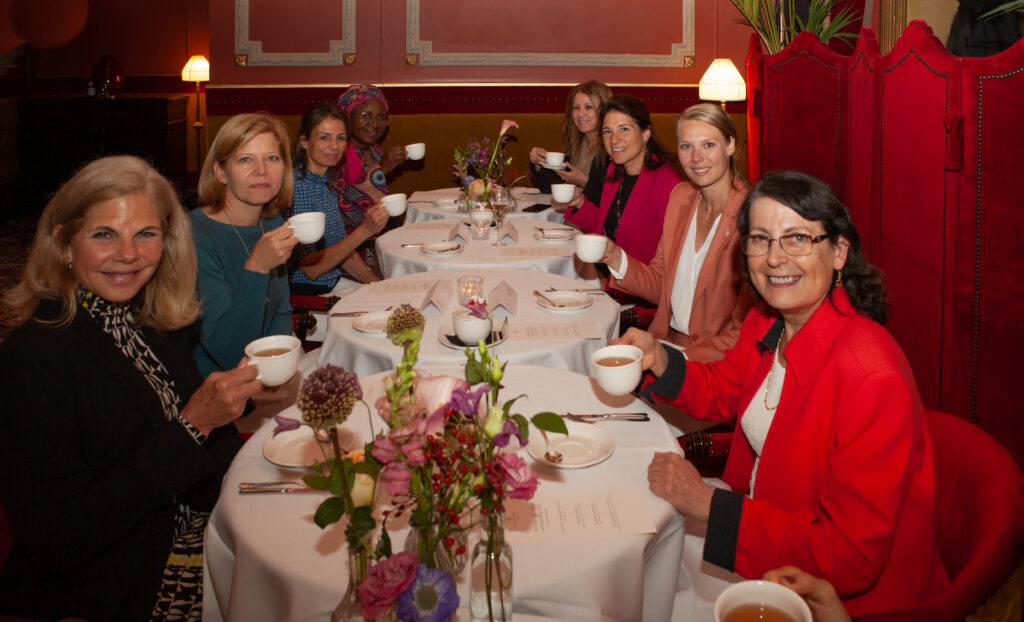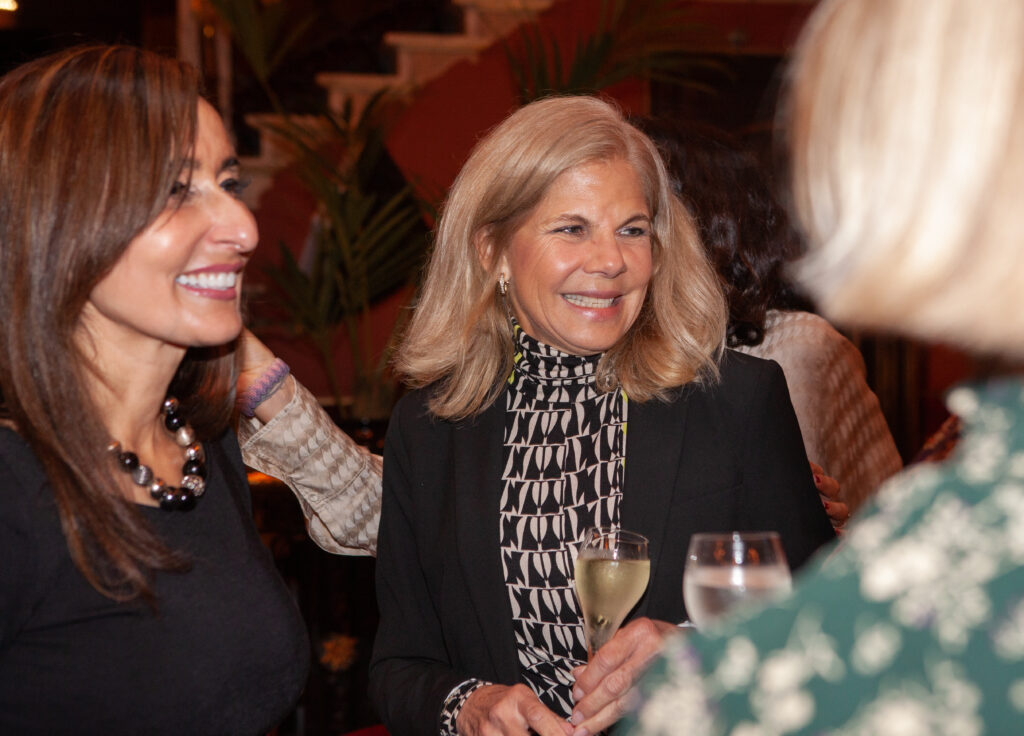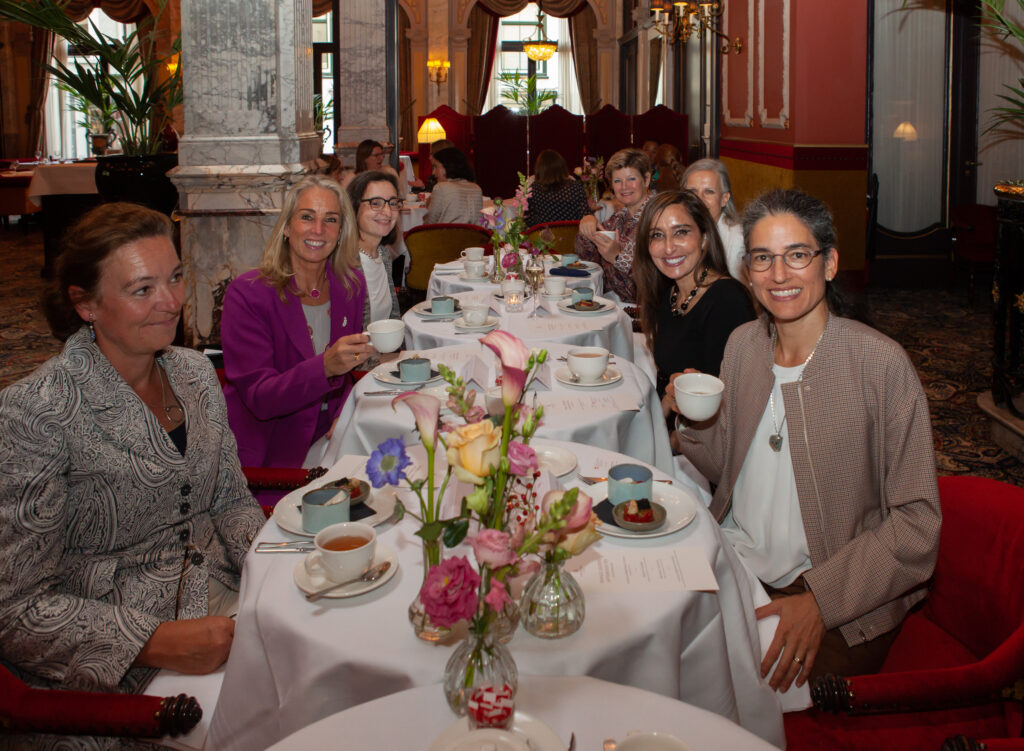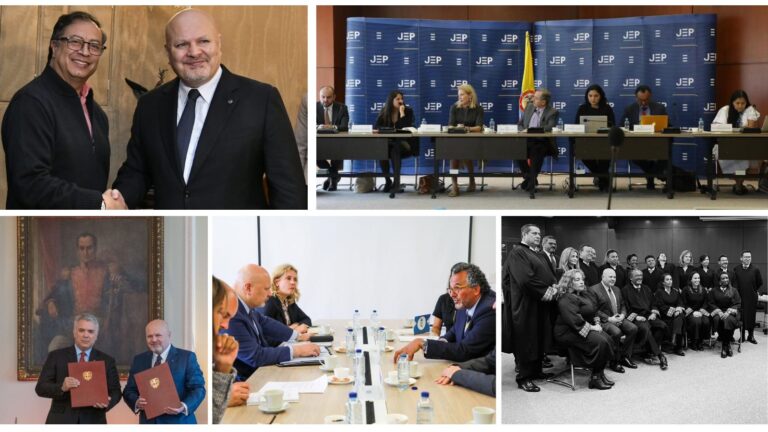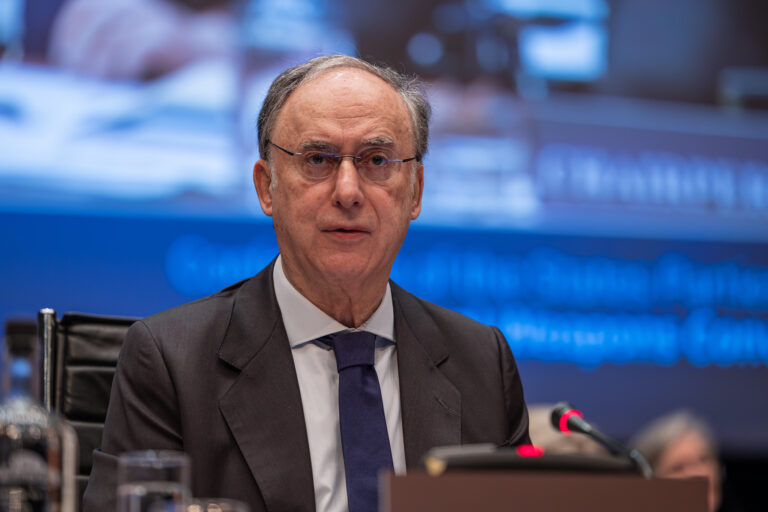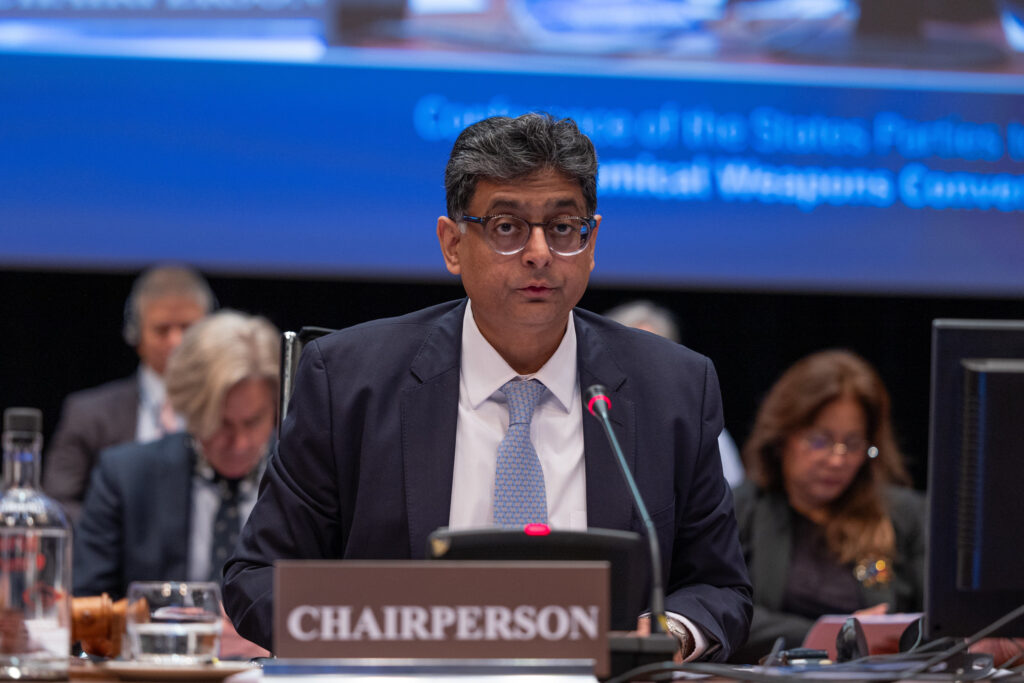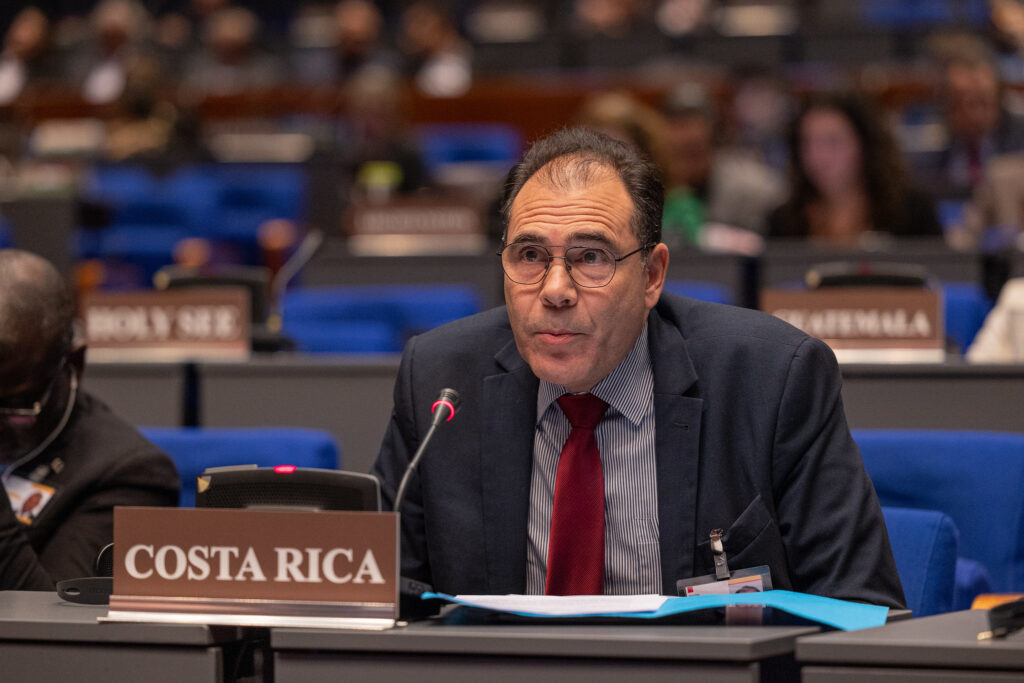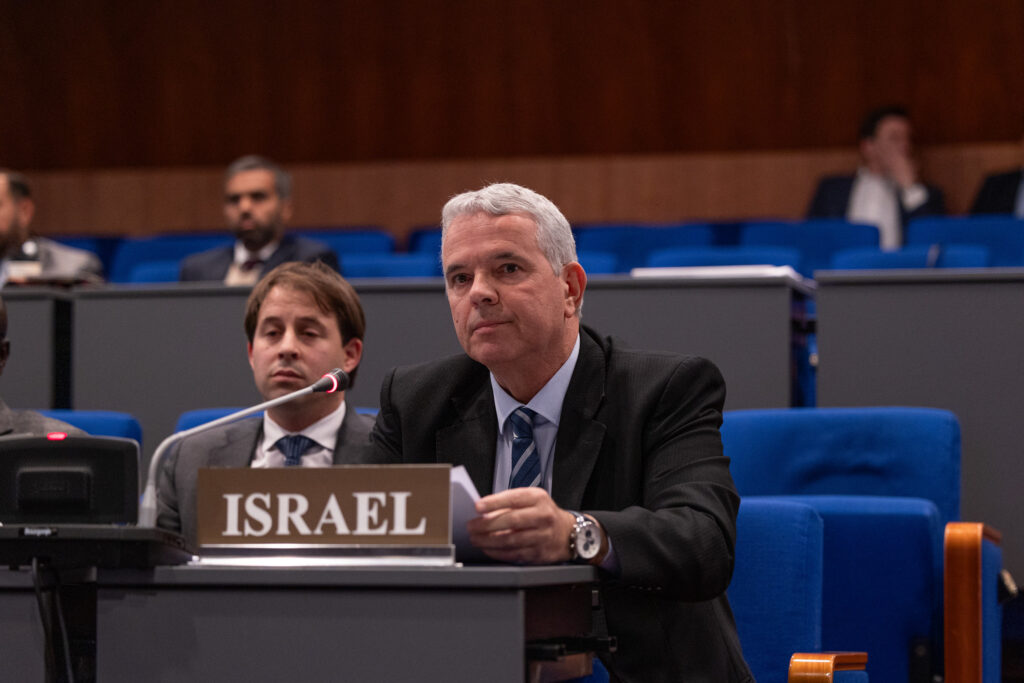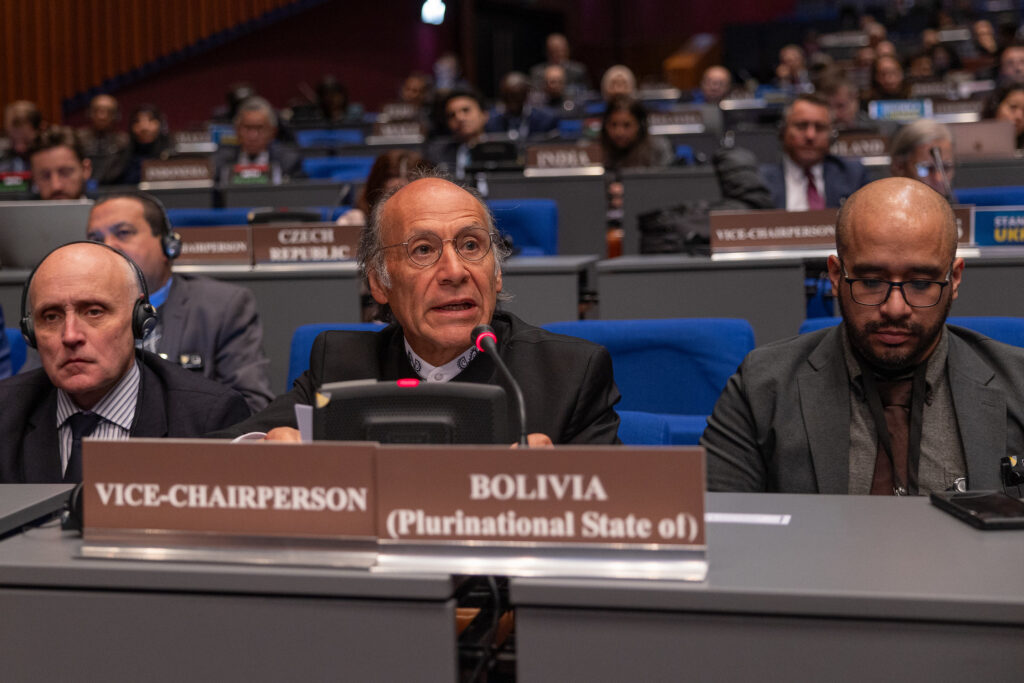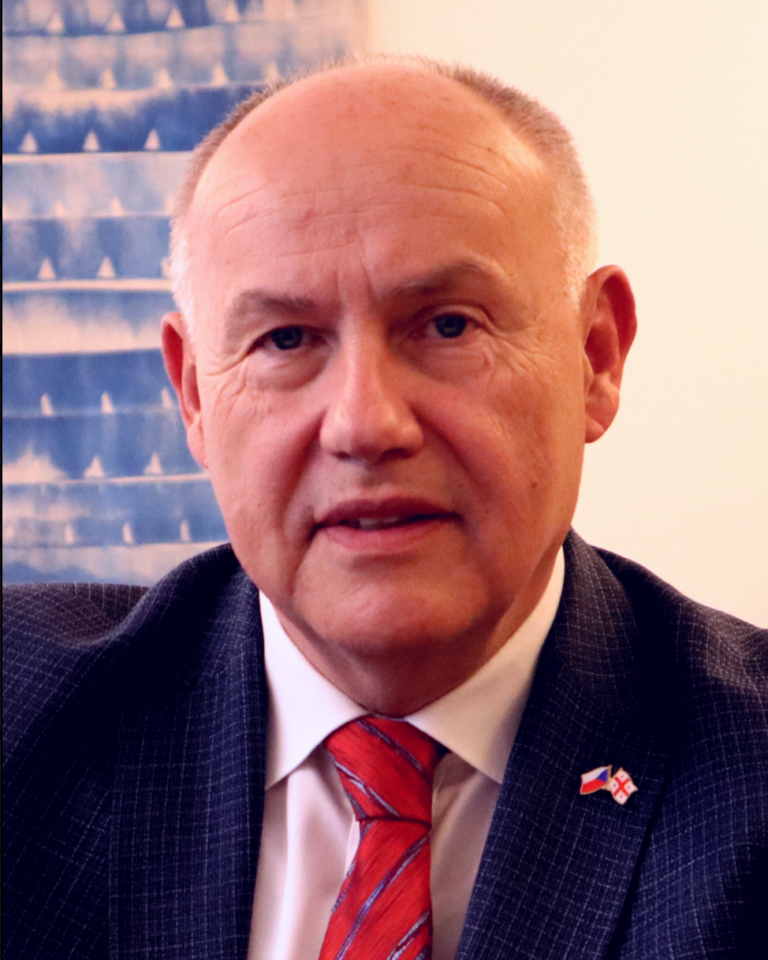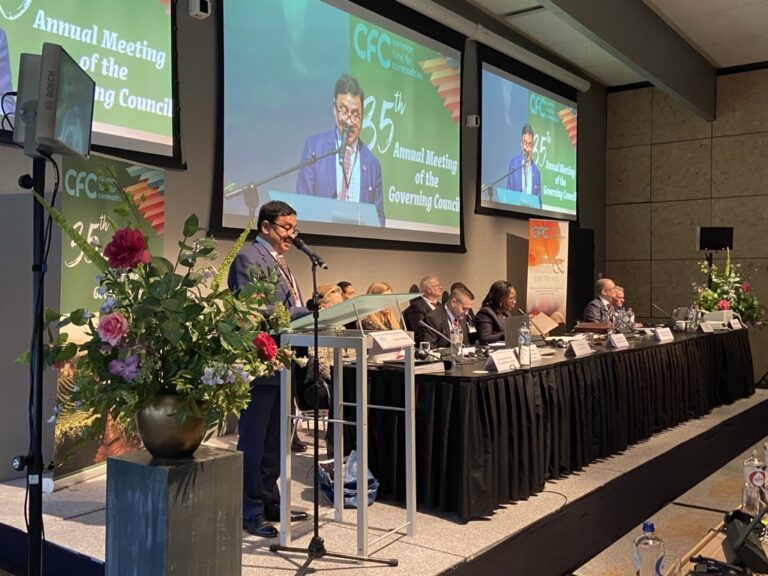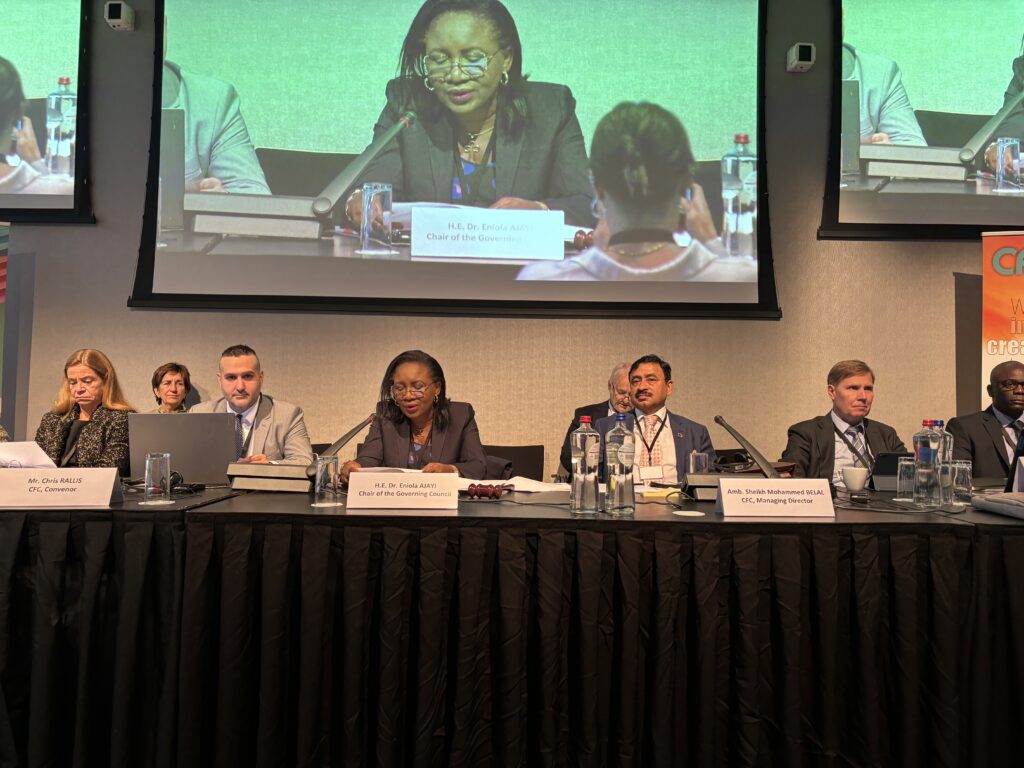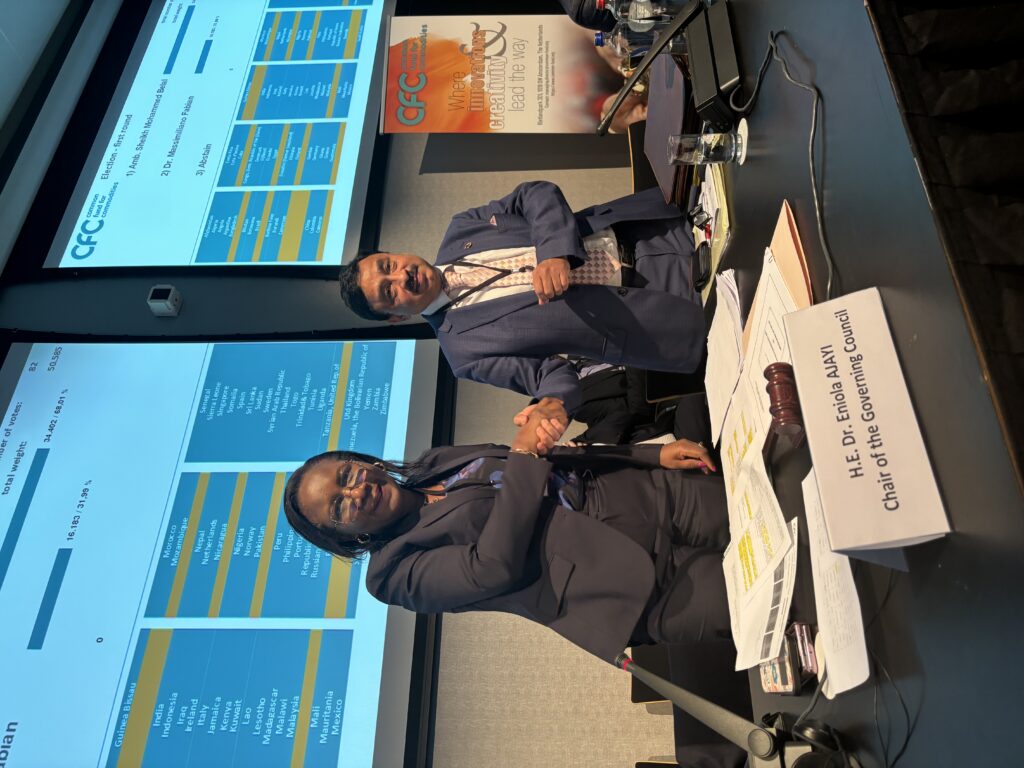Ambassador Petr Kubernát, Ambassador of the Czech Republic to Georgia
The Caucasian Journal recently had the opportunity to interview His Excellency Petr Kubernát, who assumed the role of Ambassador of the Czech Republic to Georgia in August 2023. With an extensive background in diplomatic and governmental service, coupled with noteworthy experience in the private sector, Mr. Kubernát brings a wealth of expertise to his new post in Tbilisi.
Alexander Kaffka, editor-in-chief of CJ: Your Excellency, Let me first congratulate you with the Czech national holiday – the Freedom and Democracy Day – which is celebrated on November 17. If I’m correct, throughout your career you have been working primarily in Western Europe. Does Georgia seem like a terra incognita to you?
Petr Kubernát: I was in Georgia for the first time in 1982. It was during my study at the Taras Shevchenko University in Kiev. I studied international law and international relations there, and my specialization was international economic relations. We decided with one of my friends to see a little bit outside of Ukraine. So we went to the Caucasus republics, starting with Tbilisi and continuing to Yerevan and Baku.
It was more than 40 years ago. I still remember the “Tarkhun” – that green lemonade. I like it very much, and I am very glad that I found it again here. Then I remember from that time, there was already the statue – Mother Georgia, and she’s still there. And then I remember the Rustaveli Avenue, which was very nice, and now it’s even better and nicer, I think. But all the other things have changed – changed in very positive ways, including the people. So this is my second time in Georgia.
The people are really very friendly. And since presentation of my credential to Madame President on August 17, I have had the privilege to meet very friendly Georgian people and to experience a great hospitality, to taste your delicious cuisine and excellent wine. So, now I know that I will really enjoy my stay here in your country. But, of course, I can’t say that I knew everything about Georgia before coming here.
AK: I think it is quite advantageous for Georgia to get such an experienced professional as you serving as ambassador here – and not only for Czech-Georgia relations. In the 1990s-2000s you have played a key role in Czechia’s preparation to accession into the EU. From that standpoint, how do you assess the situation with Georgia’s EU membership bid?
PK: You are right; most of my working area was in the Western part of Europe. And, maybe it was also the reason that I was a little bit tired of the Western Europe. I was serving in the European Union member states, and the job of an ambassador there is a little bit different from the job of an ambassador outside of the EU.
So I said to myself – let’s try to go somewhere outside of the EU, where it’s different but still close to what I have done so far. And because I was very much involved in the European integration business, I thought it would be nice to look around for a country which was negotiating the membership.
AK: I’m sorry to interrupt. This is a bit unusual – could you actually decide where to go for your service?
PK: We can choose some options. I wanted very much Georgia, but, in my case, it was not 100 percent guaranteed that I get what I want. But I have succeeded. I had some expectation, as I know a little bit Georgia, and I can communicate very easily in Russian. Of course, we had much in common… For many years we have been under the Soviet regime or very close to the Soviet regime. It was the case for us and for the Georgians. So I had the feeling that I knew already the country, or at least it was quite close to me, and that I could understand the nature of the people.
AK: Do you observe any parallels between the Georgian and the Czech EU membership bids, or is each accession process a completely unique case? In my view, it would be a shame not to take advantage of your experience, at such a decisive moment for Georgia’s EU aspiration. Do you think you would have a chance to contribute your piece of advice here in Georgia?
PK: I was responsible for the coordination of internal preparation of my country for accession, and also I was a part of the negotiation team. So I think that I have quite good and solid knowledge of the whole accession process and also the negotiation process. And now, during my courtesy visits and calls, I am offering to share my know-how and my experience – if they wish, of course, as I can’t push them. It’s up to them [the Georgia’s authorities]. So far, there is a positive reaction at the different ministries, and also in the Parliament. I had meetings with the Prime Minister, the Speaker, the chair of the Integration Committee and the Foreign Relations Committee. They are happy to know that there is somebody who can tell how it was during our accession time.
And of course it will not be similar, because, first of all, the time element. We have entered in 2004, so next year it will be already 20 years since our entry into EU. Of course, there have been changes since then. Still, I think that the basis remains the same. I remember that when we were starting the negotiation, we had been told that the acquis communautaire [accumulated legislation, legal acts and court decisions that constitute the body of European Union law since 1993 – CJ] is about 85,000 pages long! I don’t know how much it is now – probably more, but at the same time some of this legislation is already abolished, or there are some changes and amendments. Anyway, it’s a lot of pages, I’m sure. It will also be the case with Georgia, when you start to negotiate.
The first stage of negotiation is the process of screening, when you are comparing your legislation with the acquis. All this negotiation is about these differences and how to accommodate them, because sometimes they are difficult to adopt, and you need some transitional period. The length and the substance of this transitional period is exactly the subject of negotiation.
I’m trying to tell my Georgian partners, that a very important part of EU preparation is communication strategy. You should communicate to your people, and this communication must be very well-targeted”.
And then what is also different is the starting point. When we have started our negotiation, it was 1998, and Georgia will start – nobody knows yet, but definitely there will be a different starting position, and this is why the process also will have some differences.
What I would like also very much mentioning – and I am doing this during all the courtesy calls – is that when I came at the airport and was coming to the city, I was surprised by such a big number of EU flags. I said to myself, maybe I am already in a member state? And the second thing that came to my mind, as I am very much business-oriented, was that it was a good business to produce the flags, because they were in such a huge demand.
I was also positively surprised by the high support of the Georgian population – to have the support of more than 80 percent is really great. But I also understand that the people are feeling rather “by heart” that they would like to be a part of Europe. In our case, it was the same. Maybe it’s difficult for somebody to understand, but I remember that we were saying we would like to go back to Europe, as we had always been a part of it, unfortunately separated for more than 40 years by the “iron curtain”.
So I fully understand that there is such a support, and that it’s just a feeling of the heart, without knowing much about the European Union, how it functions, without knowing much about all the rights and duties.
And this is why I’m trying to tell my Georgian partners, that a very important part of your preparation is so-called communication strategy. You should communicate to your people, and this communication must be very well-targeted, as the communication with the general public is different from communication with the businesspeople, or students, teachers, children, youth, and so on.
I think that it is very important to avoid the frustration of the people, because I have the feeling sometimes – and that’s not a criticism from my side, it’s just status quo – that a lot of people believe that once Georgia is granted with the candidate status, everything would be solved. Just overnight, problems and complications would disappear, and Georgia would become a big paradise, which is, of course, not true. I think it’s normal, because the people are like this; and it was the same feeling in my country for some groups of people.
I have the feeling that a lot of people believe that once Georgia is granted with candidate status, everything would be solved overnight, problems would disappear, and Georgia would become a big paradise.
This is why it is important, in my view, to inform the people objectively, to give them the argumentation, to tell them about all the rights, but at the same time to tell that there are also duties, that they have to follow concrete rules and limits, and that there would be influence practically on everybody, each day from the EU membership. In my view, this is the task of the politicians to do it -the parliamentarians, the government, to inform the people.
AK: Unfortunately, nobody is doing this, neither politicians nor the mass media. We are trying to contribute what we can. I’m very glad that you are attaching such a high importance to this.
PK: Of course, and there are some limits on your side, I guess. About this communication strategy, I would like to add that, you still have some time. It’s not really a priority for tomorrow to do it immediately, but you have to start, because it’s a long, long way. And to avoid the frustration of the people, they have to be informed. In our case, it was even more appropriate, because we had the referendum at the end.
So we wanted that the people are very well informed to decide whether to go to European Union or no – to decide it on a solid basis of argumentation. And not just “I slept badly so I say no to the European Union”, or vice versa… I suppose that in case of Georgia, there will not be any referendum about the accession of your country. But anyway, it doesn’t mean that the people wouldn’t like to be informed.
And this is very crucial, in my view. All this harmonization of legislation is rather technical. I have been so many times informed that during the last year you have adopted hundreds of new laws to approximate with the EU legislation. I said, wow, it’s really a huge number. But then I’m always saying – OK, to adopt a new law is one part, but then there is the case of the implementation. And it’s very difficult to judge now about the implementation if a new law was just adopted. You need some time to see how it functions in practice. I think it’s very important.
During this harmonization of legislation, it’s important to inform the people that if we change this law, there would be some impact. For example, you will need to pay higher taxes, because it’s needed for better environment protection or for recycling. (And I was surprised that there is hardly any recycling here, and I have difficulty to dispose of a bottle to an appropriate designated garbage can, because in my country, we are separating all the waste). All these things are very important to the people.
To complete about this communication strategy – we were speaking about the internal part, but there is also the external part. As you are a future negotiating country, you should inform also externally the current EU member states who you are, what is your tradition, habit, history, and so on. I’m sure you have something concrete with which you can enrich the European “table” of culture, education, etc.
The current EU member states will decide about your membership but, frankly speaking, not so many of them know you.
And this is also very important because the current member states will decide about your membership but, frankly speaking, not so many know you. We can say that we know you not by a hundred percent, but better than the others. And for the others who do not know you yet, you have to organize some kind of external communication strategy.
It was also in our case and was quite important, even though we are in the center of Europe, and so many people are traveling as tourists to Czechia and know about the beer, the Škoda cars, the mountains and so on. But anyway, even we had to organize such an external communication to present who we are, that we have a very rich past, and we can share it with the world. So this external part of communication strategy is also very important.
Again, it’s not a priority for tomorrow, but you should think now how to start, to prepare a little bit. I remember that time, when we organized it as the Ministry of Foreign Affairs. We were like an umbrella organization, covering all other ministries and state institutions as a manager of the process. And I remember that the communication strategy had an internal and external part. We have announced the tenders, and a lot of NGOs were participating in organizing seminars and presentations; we even organized quizzes and tests for children. We had money for that, and the NGOs participated with pleasure because for them it was also a very interesting and important issue.
AK: So the external part consisted of events organized within European Union, but sponsored by the Czech government or NGOs?
PK: Yes, it was the external part of communication with the support of the Czech Embassy abroad. So, I remember the budgets of the embassies in the current member states were increased a little bit to cover this public diplomacy, so they organized all kinds of projects. It was always very good to involve a local player as well.
So, it was very good. Let’s say a hectic time, but also very interesting, because for me it was an experience for the rest of my life. I can live on such experience, and I have got a lot of knowledge on the horizontal level, from across different spheres such as agriculture, industry, economics, finance, and so on. And I am really very pleased that I was a part of that process.
AK: I am sure you are formulating some priorities for your Embassy. What are they like for the coming months?
PK: I have three main priorities. The first one is to help the integration of Georgia. If they wish, of course. Also, I’m sure you know, we are quite strong in the field of development cooperation and the transition programs. And the third priority is the business, because, as I have mentioned, I am quite business-oriented. So I would like to increase the trade turnover between Czechia and Georgia.
It’s not so bad, I have to say. Last year, in 2022, we reached about 200 million EUR. But I think there is always a potential to improve it, and in this respect I would like to do my best.
You know that Energo Pro is the biggest investor from my country; Škoda Cars and some other companies are active in the Georgian market. For example Škoda Transportation is interested in the public tender on the metro reconstruction and railway carriages.
So these three main priorities.
AK: Let’s face it: Georgia is a small country and not all attach a great significance to her role. How is Georgia – and the whole South Caucasian region – viewed from Prague?
Georgia is among six priority countries in the whole world for my country, as regards the development cooperation and transitional program, and it will remain so in the future as well…
PK: The South Caucasus region has always been very close to our heart, if I may say so. We have, in fact, opened embassies in all the three republics – Baku, Yerevan, and Tbilisi. Our embassy in Tbilisi was the first one in the region. Georgia is among six priority countries in the whole world for my country, as regards the development cooperation and transitional program, and it will remain so in the future as well. So we are doing a lot of projects in this field and we will continue to do so.
I’m even asking myself: Maybe I will need more time to spend in Georgia? That’s because I’m meeting a lot of people who know much about the Czechs and about Czechia, and I think there is some special “chemistry” between the Georgians and the Czechs, but I don’t know exactly what is it.
Maybe we have some common experience from the past, and we have more or less the same future. What is this? I don’t know yet exactly what is it.
AK: Let me think about this. The first thing that comes to my mind is that maybe they have read Jaroslav Hašek? The Czech culture has been well known not only in Georgia, but all over the Soviet Union. And if you show one of good Georgian comedies in Czech Republic, I’m sure most people would understand the humour. I had recently interviewed a German who is producing a comedy series about a Georgian, an Armenian, and an Azerbaijani students living in the same apartment (link), and I am sure you will understand a lot of this humour. At Caucasian Journal we generally pay special attention to the relationship between the three Caucasian countries.
PK: But your humor is a little bit different, no? And there is classical music, and many other aspects which are composing this mosaic of close ties and relationship between the Georgians and the Czechs, so I think we are close to each other.
You touched a very important point about the regional cooperation. I still remember, during our time, the European Commission and the Union said: “You should prove that you are able to regionally cooperate because if you are, you will be able also to cooperate inside the European Union”. So it’s very important to prove this ability.
AK: I wish to congratulate you once again with the Czech national holiday, thank you sincerely for giving the interview to Caucasian Journal, and wish you a very successful and enjoyable ambassadorial term in Georgia.
—————–
Published by Caucasian Journal on 18/11/2023




